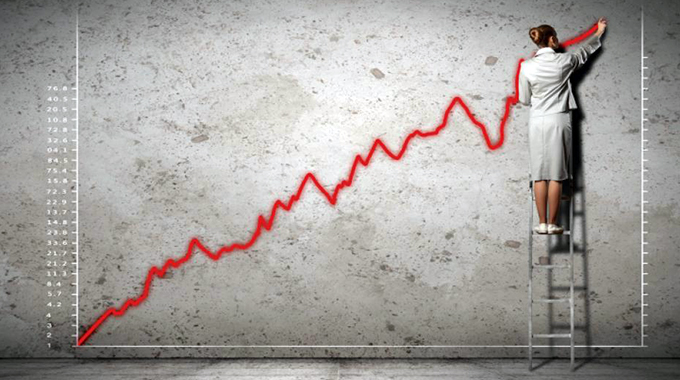Do bounce rates affect a site’s search engine ranking?

The bounce rate debate continues…
Bounce rates and how they affect a website’s ranking on Google has been discussed, dissected, and dismembered over and over again.
As fully transcribed on this site, a conversation between Rand Fishkin, CEO of Moz, and Andrey Lipattsev, Google’s search quality senior strategist, led to a surprising discussion on click and bounce rates affecting search rankings.
Rand stated that he has recently been running a few experimental tests with various crowds of 500 to a couple thousand people.
Everyone participating was prompted to take out their cellphones, laptops, and digital what-have-yous and perform a specific search. Once the search listing appeared, he had everyone in the crowd click one of the listings at the bottom of the results page and then click away from that site. He then monitored the results over the next few days.
Rand found a whole bunch of inconsistencies. In a little more than half of the experiments, the ranking did change on the search engine results page (SERP), and in a little less than half of the experiments, the rankings did not change.
This begs the question:
Do bounce rates affect a site’s search engine ranking? If so, how much?
Lipattsev believes that for each individual search query in the experiment, the generated interest regarding those specific searches impacts the rankings change rather than just the clicks and bounces.
He said that if a certain topic is gaining a substantial amount of searches and an increase in social media mentions, Google would pay more attention to that rather than a site getting more clicks.
Lipattsev says that it is certainly doable to determine exactly what causes a large rankings jump for an individual listing, but Internet-wide, it is much more difficult.
All this being said, what actually is a bounce rate?
The bounce rate is the percentage of visitors to a particular site who navigate or “bounce” away after only viewing that individual webpage.
Usually, the term ‘bounce rate’ has a negative connotation associated with it. People think that if a visitor only visits one page and then leaves, it’s bad for business. Their logic isn’t that flawed, either. After all, a high bounce rate would indicate that a site does not have the high-quality, relevant content Google wants out of its top ranked sites.
A great Search Engine Journal article shows nine negative reasons why your website could potentially have a high bounce rate, including poor web design, incorrect keyword selection, improper links, and just bad content. It’s true that these high bounce rates can reflect poorly on a website… sometimes.
So, what gives?
Having a high bounce rate on something like a ‘contact us’ page can actually be a good thing. That’s more of a call-to-action site, where the goal of that particular page is to have the user find the contact information, and then actually contact the business. The visitor got what they came for and then left. Extra navigation around the website doesn’t really mean anything in this case.
Of course, if your site is more content-driven or offers a product or service, then your goal should be to have a higher click-through rate (CTR) and more traffic to each page.
But what about Google?
Does Google know your bounce rate and are they using it to affect rankings? This Search Engine Roundtable article provides the short answer (which is “no”).
Many organizations don’t use Google Analytics, so Google has no way of tracking their bounce rate information. And even with the analytics that they can trace, it’s difficult to determine what they actually mean because every situation is different.
There are many factors that go into determining how long a visitor stays on a particular webpage. If a visitor remains on a site for over 20 minutes, they could be so engaged with your site’s content that they can’t even imagine leaving your wonderful webpage… or… it could mean they fell asleep at the screen because your website was so boring. It’s too difficult to tell.
If you are operating one of those websites that should have a lower bounce rate, these tips on lowering that number should be able to help. Some highlights include making sure each of your pages loads quickly, offers user-friendly navigation, avoids cluttered advertisements, and features quality content!
If bounce rates don’t affect Google’s rankings as much as you thought, you wonder how significant other ranking factors are. Well, Google recently revealed that magical information. They narrowed it down to three top ranking factor used by Google to drive search results:
- Links: strong links and link votes play a major role in search rankings.
- Content: having quality content is more important than ever.
- RankBrain: Google’s AI ranking system.
It’s no shock that links and content matter, but RankBrain is still relatively new. It’s Google’s new algorithm to help determine search results (after factoring in links and content). RankBrain filters more complex searches and converts them into shorter ones, all the while maintaining the complexity of the search, thusly refining the results.
Google’s newest AI technology – and whatever other secret technologies they are working on – may resolve the never-ending debate over bounce rates, but it’s certainly going to be a difficult process.
More research is to come and Andrey believes the challenge to make bounce rate click data a strong and measurable metric is “gameable,” but Google still has a long way to go.
“If we solve it, good for us,” Andrey said, “but we’re not there yet.”
There is no one-size-fits-all answer when it comes to SEO and all its intricacies. The greatest answer to any SEO question is always “it depends.”
___
by Adam Stetzer

